'A New Spirit of Activism'
September 14, 2016
(This article first appeared in the September-October 2016 issue of The American Postal Worker magazine)
Twenty-one hundred APWU members departed from the union’s 23rd National Convention in August uplifted, united and ready for the battles ahead.
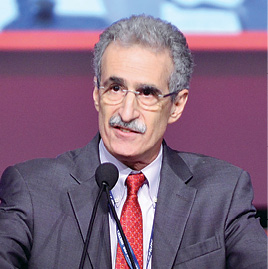 Four days of rousing speeches, an enthusiastic rally against the Trans Pacific Partnership (TPP), as well as vigorous debate over resolutions on work floor topics, politics and social issues reflected the APWU’s new spirit of activism and a commitment to strengthen the union.
Four days of rousing speeches, an enthusiastic rally against the Trans Pacific Partnership (TPP), as well as vigorous debate over resolutions on work floor topics, politics and social issues reflected the APWU’s new spirit of activism and a commitment to strengthen the union.
When all was said and done, the union had endorsed Hillary Clinton for President, garnered extensive media coverage of our opposition to the TPP, educated activists on a host of topics, displayed solidarity with workers and other allies, and begun to identify goals for the next round of contract negotiations.
A recurring theme throughout the convention was encouragement for young workers. After more than a decade of virtually no USPS hiring, an influx of new employees includes many in their 20s and 30s who are eager to fight for justice – in the workplace and in society.
Setting the Tone
President Mark Dimondstein set the tone on the convention’s opening day with an impassioned State of the Union message.
“We are working, living and struggling in a time where there is an all-out war on workers, our families, our communities, our standards of living, our rights, our organizations,” he said. “Our precious right to vote is under severe attack,” and “elections are increasingly and openly bought and sold…
“Public libraries, parks, hospitals, schools, utilities, transportation and yes, public postal services, are under extreme attack aimed at privatization…
“All this is part of our reality. But there is another truth as well: Workers are standing up and fighting back…
“The APWU is actively in the midst of this good fight.”
Front and center since the last convention has been the fight for a new collective bargaining agreement. Union negotiators refused to engage in another round of concessionary bargaining and made progress on most of our major goals – securing real wage increases, strengthening job security, defending our cost-of-living and no lay-off protections, and enhancing the career and full-time workforce, Dimondstein reported.
The APWU will continue the fight to improve working conditions, speed up the grievance procedure, and resist policies that undermine good service to the people and job security, he declared. We will build the fight for expanded services and for postal reform that fixes the pre-funding debacle. We will continue the good fight to stop further plant consolidations and closings and to return to overnight service standards.
“From our workplaces to the streets, from our neighborhoods to the halls of Congress, it is time to ever more seriously educate, organize, mobilize and galvanize,” Dimondstein said.
“Mobilized and united in action, ‘Fighting for Justice,’ we have made great progress. We can forge ahead, build our power, and win!”
Hillary Clinton for President 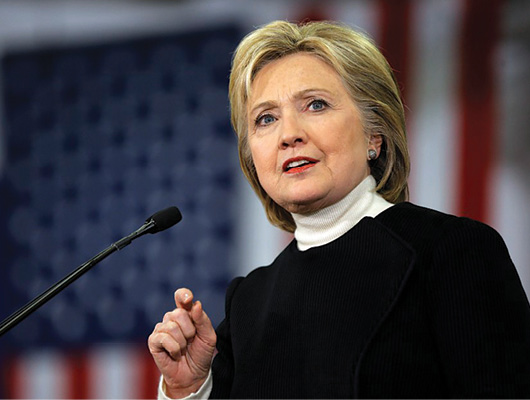
Delegates voted to endorse Hillary Clinton for president and to “support her in every possible way.” The endorsement resolution noted that “the Republican nominee is anti-union, anti-worker, anti-women, anti-black, anti-Hispanic, anti-Muslim and anti-American.”
Clinton sent a letter thanking the APWU for the endorsement and made a strong commitment to uphold APWU goals if she is elected.
“For the past 45 years, APWU has been on the frontlines of the fight for a fairer, stronger America, and I’m proud to stand with you... If I am so fortunate to serve as president, I’ll work to relieve the pre-funding mandate for retiree health costs; restore overnight mail service standards for local mail; appoint postal leaders who champion a strong public Postal Service; and strengthen partnerships between the Postal Service, community banks, and credit unions to provide more American access to affordable financial services.
“I believe all workers should have a voice and a seat at the table in making decisions that impact them, and I look forward to working with you and your brothers and sisters as we build a brighter American future. Let’s keep fighting, and let’s win!”
Workplace Issues

Delegates voted on workplace resolutions, focusing on proposals for future contract negotiations. They adopted resolutions dealing with safety and health, excessing, duty assignments, clothing allowances, the seniority rights of Part-Time Flexibles, and improving the conditions of Postal Support Employees. The convention also approved resolutions addressing issues specific to each craft.
Following a vigorous debate, delegates approved a resolution that allows regions to opt out of the Joint Arbitration Selection System (JASS). The nationwide program was intended to establish a method for the union and management to jointly schedule arbitration cases and select arbitrators.
Although representatives from some regions of the country praised the program, others – especially those in the Eastern and Northeast Region – said it’s been a disaster, resulting in reduced arbitration hearing dates, an inability to schedule priority cases, and management manipulating the selection of arbitrators.
Constitutional Changes
The assembly also approved five changes to the APWU Constitution. The first change modified the APWU Officers’ Retirement Plan. At the direction of the 2014 National Convention, a special committee was established to review the plan. Delegates overwhelmingly approved a resolution that will maintain the current plan while limiting the future burden on the union’s membership by establishing an appropriate fixed contribution level.
Dimondstein praised the work of the committee: Jonathan Smith, New York Metro Area Local; Annette August-Taylor, Northern Virginia Area Local; Connie Sadler-Nelson, Tucson Area Local; Craig Fisher, Tri-County Ohio Area Local, and Jared Wonde, Dallas Area Local, as well as members of the National Executive Council and the Constitution Committee for their contributions to the adoption of the resolution.
Delegates also voted to add a National Business Agent position to the Support Services Division, which represents a very diverse membership – including employees in Information Technology/Accounting Services, private-sector trucking companies, Material Support /Operating Services, and postal nurses.
The convention voted to abolish a vacant Washington, DC, Clerk Craft NBA position; and added a requirement to the Officers’ Oath of Office to purchase goods from unionized retailers whenever possible.
Delegates approved reimbursement of expenses for the union’s five retiree National Convention delegates to attend the Retirees Department Conference that is held in conjunction with the union’s All-Craft Conferences in odd-numbered years.
Retirees no longer work in the Postal Service, but they are still a fighting force in the union and their communities. Retirees met prior to the convention, and discussed mobilizing to protect the public Postal Service, winning support for postal banking, and building the campaign to Stop Staples, as well as the fight to expand Medicare and strengthen Social Security.
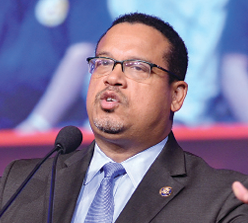

Part of a Movement
Numerous guest speakers invoked the convention theme, Fighting for Justice.
Borrowing a phrase from President Teddy Roosevelt, former Ohio State Senator Nina Turner told union members postal work is “work worth doing.” The fight for postal banking is also work worth doing, “so poor folks don’t have to go to a payday lender or check casher.” The fight for justice is also “work worth doing,” she said.
Rep. Keith Ellison (D-MN) said there are people “lurking around, trying to privatize our post office,” and declared, “We are not going to let them do it!” He praised the Stop Staples campaign, saying the shady deal between USPS and the office supplier is a perfect example of the attack on public services. “I want sworn, experienced, trained postal workers handling the mail, not Staples,” he said.
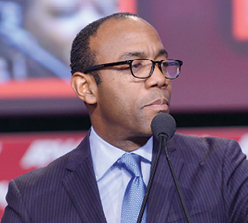
Cornell Brooks, president of the NAACP, stressed that our organizations are allies in the fight for social justice. “Our dreams, aspirations and ambitions are mocked by the privileged 1%,” but added, “The right to vote shines like a North Star.”
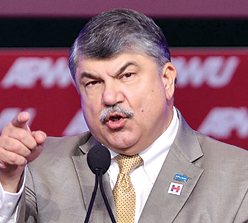
Fredric Rolando, president of the National Association of Letter Carriers, told APWU members, “We are at war with an ideology in this country that wants to destroy our public Postal Service as we know it.” The “key to the survival of the USPS is a coalition among the four postal union, and including the big mailers and postal management to win worthwhile postal reform legislation.”
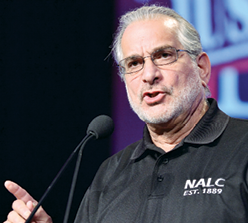
Richard Trumka, president of the 12.5 million member AFL-CIO, said, “You are part of a national movement of working people who are putting good jobs, raising wages and strong unions front and center.” Delegates also heard inspiring speeches and messages of solidarity from many others: Rev. Terry Melvin, president of the Coalition of Black Trade Unionists; Jim Hightower, populist commentator; Prof. Mehrsa Baradaran, banking expert and proponent of postal banking, and Dave Ward, general secretary of the United Kingdom’s Communications Workers Union.
All the speakers expressed opposition to postal privatization, support for postal banking, and protecting the right to vote.
Workers Speak Out
Two rank-and-file workers shared personal stories of their fight for justice.

Tatiana Hill, a Verizon retail worker from Brooklyn, NY, is now a union steward who served as a member of the CWA’s rank-and-file negotiating committee.
“Corporate America is more greedy than I could ever imagine, but I learned to have more courage than I ever knew I could possess. I also learned that there is a growing movement of workers that will do anything to win,” Hill said, thanking APWU members for joining their picket lines.
Mike Smith, 59, was laid off in March by Nabisco when the company outsourced 600 jobs from its Chicago plant. “This is corporate greed at its worst and it must stop,” he said. APWU delegates voted to endorse a boycott of Nabisco products made in Mexico.
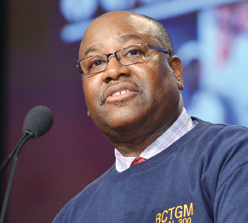
Solidarity Struggles
On the convention’s final day, delegates approved resolutions in solidarity with the struggles of other workers and allies.
One such resolution encourages locals and state organizations to participate in “the fight for environmental justice and the mitigation of the effects of climate change.”
Another calls on the APWU to continue the “political revolution” and join with allies to form an ongoing movement for economic and social justice that incorporates many of the demands raised by the presidential campaign of Sen. Bernie Sanders.
Delegates also approved a resolution that calls on the president and Congress to “bring the war dollars home;” rebuild the country’s crumbling infrastructure – creating millions of living-wage jobs; redirect federal tax dollars to address human needs, and provide adequate funding for services to veterans of Iraq and Afghanistan.
The convention also voted in support of the Black Lives Matter movement. New York Metro President Jonathan Smith intoned familiar names: “Trayvon Martin matters. Michael Brown matters. Eric Garner matters. Tamir Rice matters,” he said.
Paul Felton of the 480-481 Area Local agreed. “I understand that police officers have a very difficult job” and that “the vast majority of police officers are very conscientious,” he said, but he expressed frustration at the violence against unarmed black youth.
The slogan “Black Lives Matter” in no ways implies that white lives do not matter, he pointed out. “The point is that black lives should matter the same as white lives.”
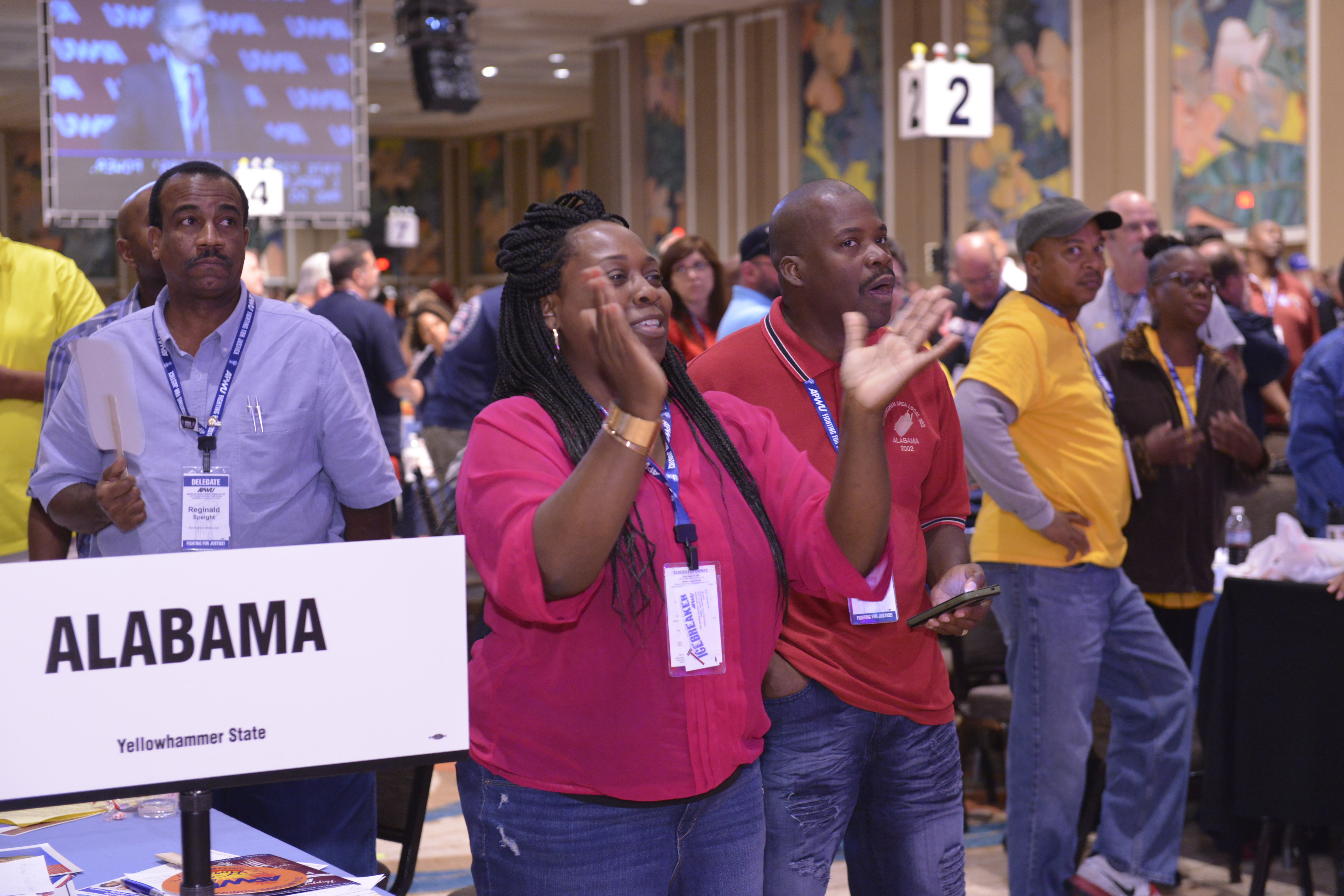 Video Highlights
Video Highlights
Video highlights of the convention can be viewed on apwu.org and on the union’s Facebook page, Facebook.com/APWUnational.
A video featuring country music icon Willie Nelson, sponsored by A Grand Alliance to Save Our Public Postal Service, made its debut at the convention as well and can also be viewed online.
Defeat the Secret Trade Deal TPP
APWU delegates held a spirited rally protesting the Trans-Pacific Partnership (TPP) on Aug. 23, the second day of the convention.
With Secretary-Treasurer Liz Powell serving as emcee, and the APWU Labor Chorus singing loud and proud, speakers outlined the damaging effect the trade deal between the US and 11 other countries would have.

“What’s at stake is your jobs, all of the jobs of the people you love and all the jobs in middle-class America,” said Rep. Alan Grayson (D-FL). “It’s a road that leads to nothing but cheap labor.”
Broadcaster Ed Schultz energized the crowd with a fiery pep talk. “If you think that 200,000 workers in your union can’t make a difference, you are wrong! You can make a difference, we have the power!” he said.
Schultz urged delegates to call their local elected officials and ask them to vote against TPP legislation. He also called on Hillary Clinton to “get on the phone” with senators and urge them to oppose it, whenever it comes up for a vote.
“This will gut American jobs, depress wages and destroy the middle class,” he said. “It’s a corporate deal that is going to help the people of Wall Street and it ain’t gonna do anything for Main Street”
The rally generated extensive media coverage, with a local TV report and articles in Politico, the Sun Sentinel, the Orlando Sentinel, and Campaign for America’s Future.
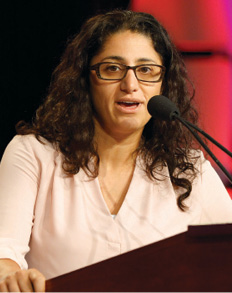
A Real-Life Hero
One of the most memorable speeches was given by Dr. Mona Hanna-Attish, the pediatrician who exposed the Flint water crisis by proving that lead was poisoning the children of the impoverished city. For her efforts, she was vilified and labeled “an unfortunate researcher who was causing near hysteria.”
But the good doctor was not deterred. She advocated for the children and families of her city until the story pierced the consciousness of the nation.
“Flint did not always mean disaster,” she said. It was home to General Motors, the United Auto Workers union, and the great sit-down strike of the 1930s. Because of good union jobs, Flint had the highest per capita wages in the country, with great schools and hospitals.
It was the decline of the auto industry and Flint’s unions that led to decades of disinvestment, and ultimately to the austerity measures that poisoned the water, she pointed out.
“The most important medication I can prescribe for Flint is to lift our families out of poverty,” Hanna-Attish said. “Being in a union family can buffer children from any adversity.”
The APWU presented her with a $10,000 check for the Flint Child and Health Development Fund. Delegates were so inspired by her remarks that they passed buckets for additional contributions and raised more than $12,600! The Mott Foundation, based in Flint, matched the APWU’s contributions, bringing the total to $50,000.
Delegates voted unanimously to induct Dr. Hanna-Attish as an Honorary Member of the APWU.



